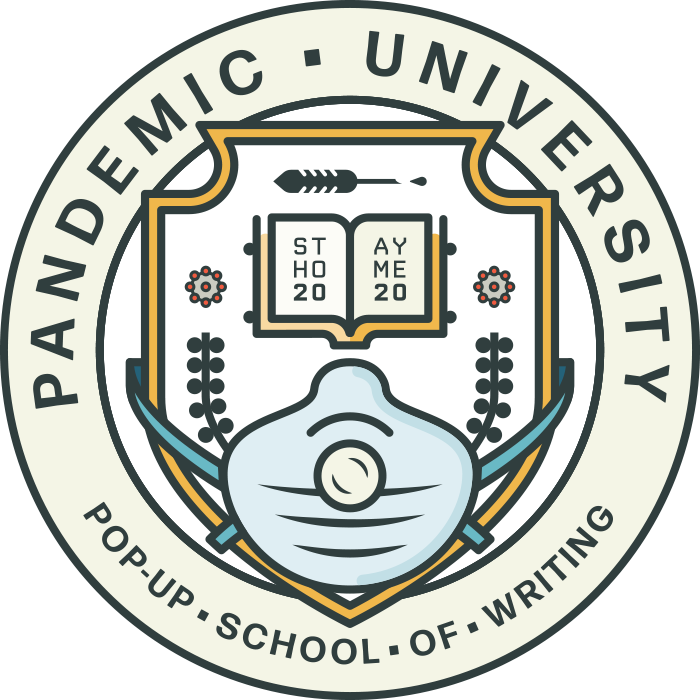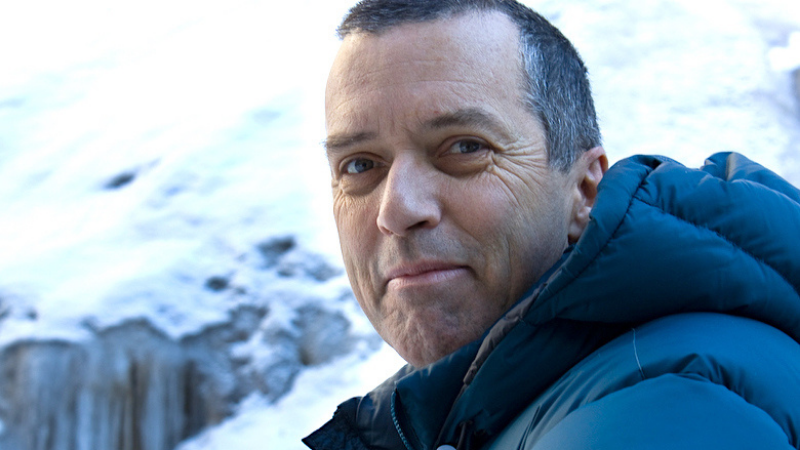Writer and conservationist Kevin Van Tighem fostered his love for nature as an academic studying plant ecology in the 1970s and later as superintendent of Banff National Park.
Now a full-time writer and journalist with fourteen books to his name, Kevin hopes to inspire more than an appreciation for nature within us. Whether he’s writing to demystify bears or trace the journey of Alberta’s gorgeous Bow River, Kevin is setting out to improve our ecological literacy.
On Tuesday, May 25th, Kevin will teach us some of the lessons in writing memorable prose that he’s learned from the hundreds of articles and chapters he’s written over the years.
His workshop, Putting Your Skills to Work, is part of Pandemic U’s collaboration with the Yellowstone to Yukon Conservation Initiative, a completely free series of five masterclasses on science and nature writing called Writing Is Your Nature.
Before his class, we asked Kevin a few questions about authoring books, weaving advocacy into his prose, and what “connectivity” really means to him.
Register for Writing is Your NatureWhen did you first realize that creating a compelling, personal narrative could be a way to teach people stories about our environment?
I think it would have been when I was in my teens and reading the works of Sigurd Olson, Joseph Wood Krutch, Aldo Leopold and various outdoor columnists in the fishing and hunting magazines I devoured in those days. There was a sense of vicarious experience and intimacy in the first-person reflections they wrote.
I didn’t feel I could ever measure up to most of them where writing skill or depth of insight were concerned, but I found that the more time I spent afield, the more stories I seemed to have to share. So it was a natural outgrowth out of the kind of literature I enjoyed and the outdoor life I was fortunate enough to enjoy.
We are a species that has somehow managed to separate ourselves, at least in our collective consciousness, from the rest of Nature and from the nature of life.
You emphasize building ecological literacy and connection. Why is that, and what kind of value do you think it poses to readers and society?
The biblical metaphor of humans as fallen angels, like most of the metaphors in the great works of spiritual teaching, seems to land very close to the mark where most modern societies are concerned. We are a species that has somehow managed to separate ourselves, at least in our collective consciousness, from the rest of Nature and from the nature of life. That causes great harm, because it leads us to objectify anything that isn’t human and to view the world as something that is there be used, not as something that is to be lived.
I think there is a deep longing and need in people, and that it comes of that disenfranchisement. Maybe I’m wrong. But you have to start from a set of assumptions and one of mine is that if we can use language and imagery to help people better re-integrate themselves with the rest of Nature, that would benefit not just us, by filling a void, but the world that we are ruining with bad decisions.
You’ve written a whopping fourteen books! What would you go back and tell yourself now if you were just writing the first one?
Start sooner, and stop second-guessing yourself. I would have produced more books sooner if I hadn’t always assumed I wasn’t good enough or skilled enough or that my stories and insights weren’t deep and compelling enough.
I love reading books and — at about the 75 percent written stage — I love writing books. They offer the most immersive kinds of prose where, for the time that you are engaged with them, you aren’t just dropping in as might be the case with a shorter essay or article, but almost living the author’s experience. So I wish I’d started sooner, and I’d encourage any serious writer to put their self-doubt aside and just do it.
Can you separate your work as an advocate and your work as a writer? Why/why not?
No, I can’t. It’s all the same person. What I can do is discipline myself as a writer to respect my audiences, respect my subject, and be honest about my own fallibility: to approach writing with discipline and fairness.
There are standards of journalistic integrity that, I believe, matter. I try to adhere to them and when I just have to let my conservation advocate out unleashed, I at least disclose that. But if one writes to promote, as you pointed out earlier, ecological literacy and connection, then, by definition, that is a part of one’s advocacy work too.
Start sooner, and stop second-guessing yourself. I would have produced more books sooner if I hadn’t always assumed I wasn’t good enough.
Finally: what’s your favourite place in nature?
That’s like asking me who my favourite child is. Not fair! But if I had to choose, it would be beside any living creek or river in western Alberta, where water talks ceaselessly and the contrived world vanishes, and where life is at its most abundant and fecund and diverse.
I love to listen to running water, and to try to figure out what it’s telling me — to watch it arrive from an upstream bend and then depart around a downstream bend, and to think of all that it connects.
Register for Writing is Your NatureThe interview has been edited for clarity and brevity.

